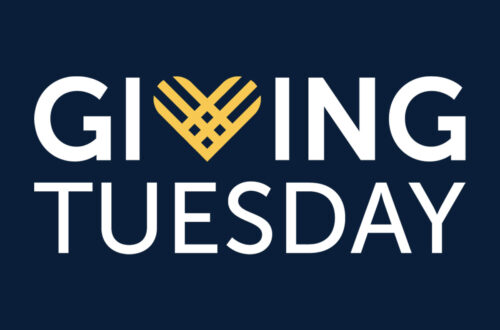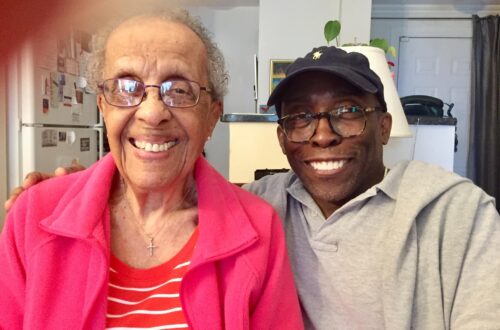Difficult people are hard to love. This makes having healthy relationships with them challenging. Read as: a pain the ass, thorn in the side, fun as a sharp stick in the eye, or all of the above. Everyone has at least one difficult relationship. And probably the most challenging relationship is the one between parents and their adult children.
When the kids are babies, parents have total control, as well they should. Babies don’t have the ability to understand all that goes into changing their poopy diapers, much less how to maintain a family. But as babies grow, mature, and take on more responsibility, parents loosen the reins of their control over them.
Typically, everyone in a family is assigned or chooses a role — the nurturer, the queen, the martyr, the disciplinarian, the king, the incompetent, the pretty one, the smart one, mama’s boy, daddy’s girl, the golden child, the problem child, the baby, the odd ball, and dozens more — and everyone plays their part to the hilt based on other members’ expectations. Because that’s what families do, they teach us how to negotiate relationships in a closed system. As the family matures and children transition into adulthood and parents age, members grow to understand one another better, the dynamics shift and readjust, and everyone lives happily ever after.
That’s the Hallmark Channel version of a typical family.
Picket Fences
In the real world, familial interactions can sometimes take on a less than harmonious dynamic when a parent has an addiction, is involved in substance abuse, commits sexual abuse, spouse abuse, or any number of other dysfunctions. The parent’s behavior (mood swings, fits of rage, physical and emotional violence) can wreak havoc on others in the home by dominating the emotional space. By that I mean, their behavior barely leaves any room for anyone else to emote, breathe, or have an independent thought or action. Everything revolves the dominant personality’s dysfunctional demands.
Relationships can become enmeshed by the slow erosion of personal boundaries. Spouses and siblings can begin to feel responsible for circumstances for which they are not responsible. They may perform intricate ballets atop eggshells, all in an attempt to maintain the illusion of peace and normalcy by not doing anything to trigger the dominating personality’s fury. All of this happens while suppressing their true feelings. And the smiles, idyllic white picket fence, manicured lawn—the signs of a normal life—belie the emotional horror show playing out inside the home.
Boundaries
Around the beginning of the teenage years, most youth begin asserting their independence—developing boundaries in thought and action—with their peers and families. This allow for both the parent and the child to relate to one another with increasing independence.
In the case of dysfunctional families, the kids don’t get to make a clear delineation or “clean break” from their parents and establish their own independence and are in a sense bullied by their parents’ addictions. Boundaries either aren’t developed or they’re systematically obliterated.
When those dysfunctional dynamics continue between adult children and their parents—even after the kids have moved out of their parents’ home and have established careers and homes of their own—adult children can be subjugated by their parents domineering ways.
The “New” Rules of Engagement
When the discomfort of the status quo becomes intolerable or you realize that your agency lies not in controlling others, but in choosing how you will react, and what you will allow to continue to be a part of your life, only then you will begin to establish new rules of engagement by confronting others in love and setting healthy boundaries for yourself (ways you’ll allow others to interact with you) and sharing with others parameters of what is acceptable and unacceptable.
The following is the essence of what needs to be communicated. Use words that are suitable to you and your situation—
When you [insert specific behavior], it makes me feel [insert your reaction]. If you continue [specific behavior], I will remove myself from the situation.
As I said earlier, there are dynamics or unspoken rules that not only keep the dysfunctional family machine running smoothly, but determine the roles family members portray. I’d be doing you a huge disservice and telling a blatant lie, if at this point I said, “… it’ll be fine from here on.”
It won’t be fine, at least not right away.
Resistance
The biggest hindrance to change is resistance. If it ain’t broke, don’t fix it.That’s the mantra of the one who broke the relationship in the first place and is quite content with the way things are.
When we attempt to recast our assigned/accepted role or change the rules, we may as well be throwing a wrench into the works. And this is where the shit can hit the fan. You’ll more than likely feel weird, strange, odd, essentially uncomfortable because you’ll be in unfamiliar territory with your parent(s) as you’re changing the rules to a game that’s been played a certain way for years. And there’s a good chance your parent (or offending party) will fly off the handle or test you to see if you’re serious, so be prepared.
Do not attempt to establish boundaries unless you love yourself and the other person enough to walk away from the situation. This type of paradigm shift doesn’t resolve itself in a single interaction. It’s an ongoing process. People don’t arrive in these situations over night, it took time for everyone involved to learn the behaviors. So, it’s only natural to assume that it will take time for the involved parties to learn the new behaviors.
The Take-Away
Relationships in and of themselves are tricky. Dysfunctional relationships between parents and adult children can be a minefield. If we want to change the dynamic, we can not control another person’s actions. Our first recourse is to change how we respond to others or to remove ourselves from the situation. In order to put an end to parents (or others) treating you like a child, you must be willing to stop reacting to them like a child and meet them on equal footing. It’s important to remember that as adults, we teach people how to treat us in how we allow people to treat us.
Love one another.



